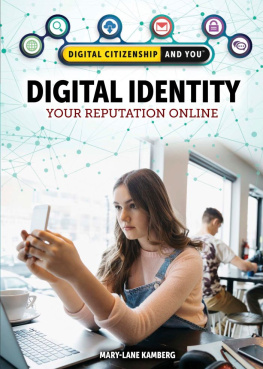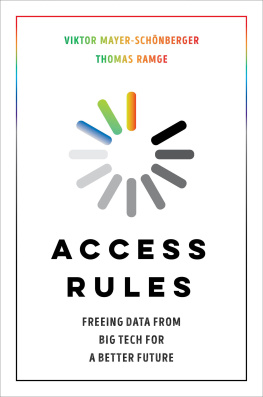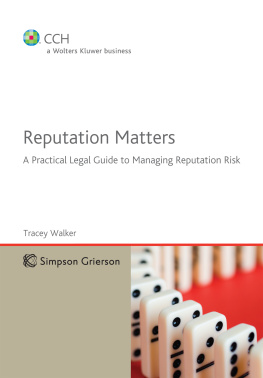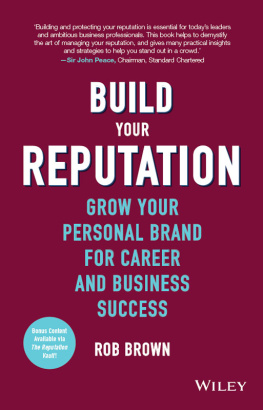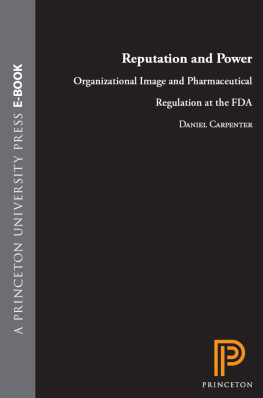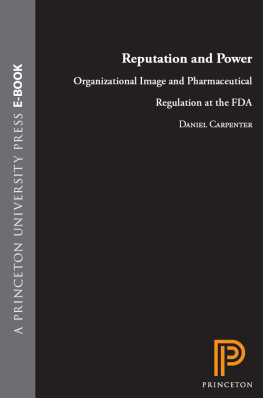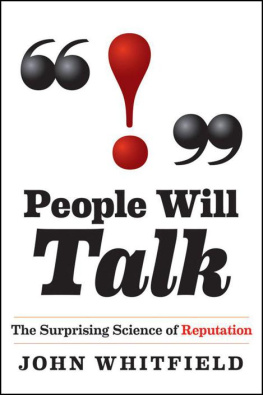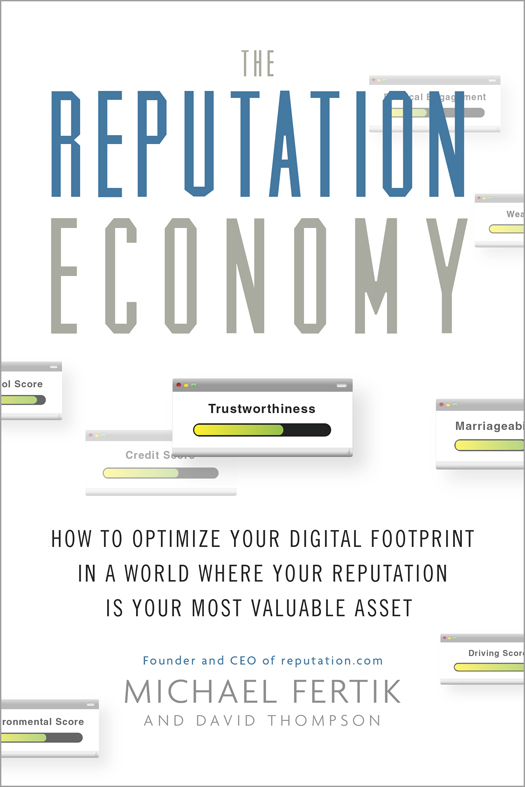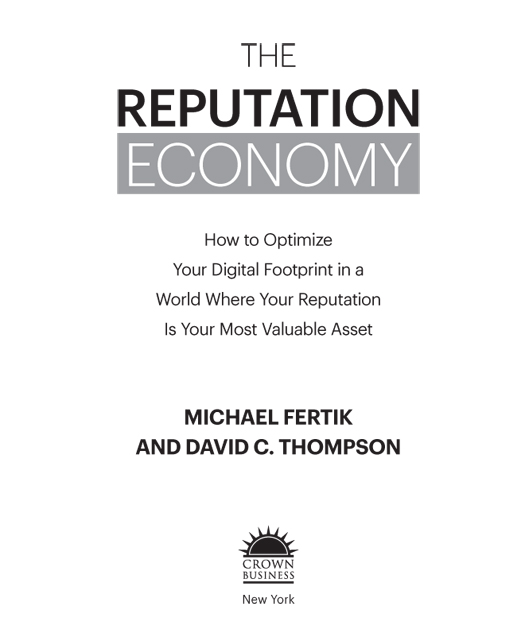Michael Fertik - The Reputation Economy: How to Optimize Your Digital Footprint in a World Where Your Reputation Is Your Most Valuable Asset
Here you can read online Michael Fertik - The Reputation Economy: How to Optimize Your Digital Footprint in a World Where Your Reputation Is Your Most Valuable Asset full text of the book (entire story) in english for free. Download pdf and epub, get meaning, cover and reviews about this ebook. year: 2015, publisher: Crown Business, genre: Politics. Description of the work, (preface) as well as reviews are available. Best literature library LitArk.com created for fans of good reading and offers a wide selection of genres:
Romance novel
Science fiction
Adventure
Detective
Science
History
Home and family
Prose
Art
Politics
Computer
Non-fiction
Religion
Business
Children
Humor
Choose a favorite category and find really read worthwhile books. Enjoy immersion in the world of imagination, feel the emotions of the characters or learn something new for yourself, make an fascinating discovery.

- Book:The Reputation Economy: How to Optimize Your Digital Footprint in a World Where Your Reputation Is Your Most Valuable Asset
- Author:
- Publisher:Crown Business
- Genre:
- Year:2015
- Rating:5 / 5
- Favourites:Add to favourites
- Your mark:
The Reputation Economy: How to Optimize Your Digital Footprint in a World Where Your Reputation Is Your Most Valuable Asset: summary, description and annotation
We offer to read an annotation, description, summary or preface (depends on what the author of the book "The Reputation Economy: How to Optimize Your Digital Footprint in a World Where Your Reputation Is Your Most Valuable Asset" wrote himself). If you haven't found the necessary information about the book — write in the comments, we will try to find it.
Your reputation defines how people see you and what they will do for you. It determines whether your bank will lend you money to buy a house or car; whether your landlord will accept you as a tenant; which employers will hire you and how much they will pay you. It can even affect your marriage prospects.
And in the coming Reputation Economy, its getting more powerful than ever. Because today, thanks to rapid advances in digital technology, anyone access huge troves of information about you your buying habits, your finances, your professional and personal networks, and even your physical whereabouts - at any time. In a world where technology allows companies and individuals alike to not only gather all this data but also aggregate it and analyze it with frightening speed, accuracy, and sophistication, our digital reputations are fast becoming our most valuable currency.
Here, Michael Fertik, CEO of Reputation.com and one of Silicon Valleys leading futurists will draw on the insider tools, insights, research, and secrets that has make Reputation.com the leading reputation management firm, to show how to capitalize on the trends the Reputation Economy will trigger to improve your professional, financial, and even social prospects.
You will learn:
What keywords to put in your resume, performance review, and LinkedIn profile to come up at the top of potential employers search results.
How to curate your on and offline activity in way that will reduce the premiums calculated by insurers, lenders, and investors.
Tricks that will get you express or VIP treatment at banks, hotels, and other exclusive special offers.
Ways to improve your review or rating on sharing or peer review sites like Yelp or Angies List, or your standing as buyer or seller - on sharing economy sites like AirBnB or Uber
How to create false tails and digital smokescreens to hide the negative information thats out there
With a good digital footprint, the world is your oyster. This book will show you how to control, curate, and optimize your digital reputation to become rich in a world where your reputation is as valuable as the cash in your wallet.
Michael Fertik: author's other books
Who wrote The Reputation Economy: How to Optimize Your Digital Footprint in a World Where Your Reputation Is Your Most Valuable Asset? Find out the surname, the name of the author of the book and a list of all author's works by series.

